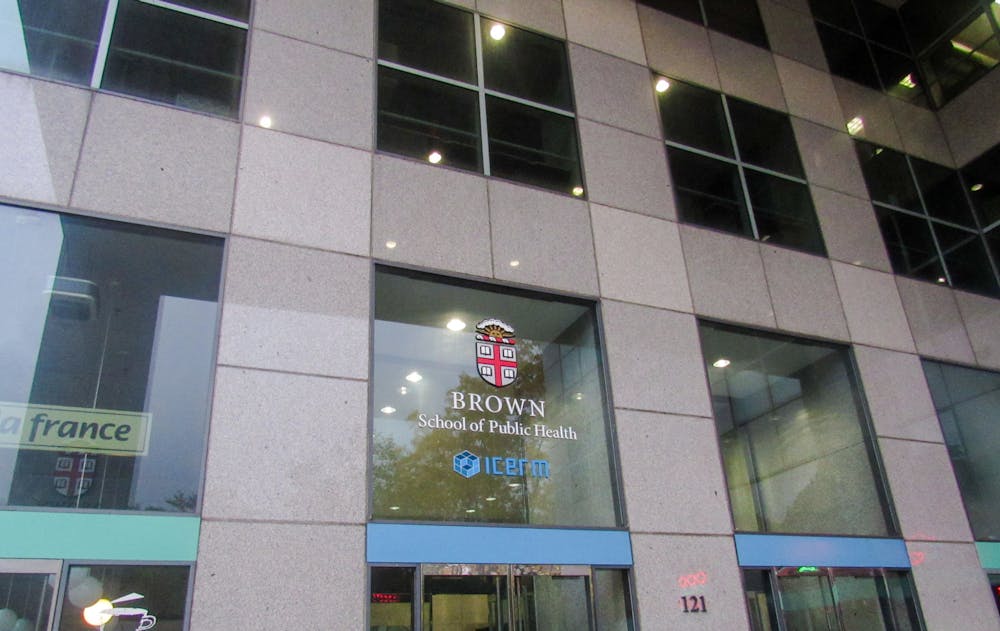The second cohort of a scholarship and leadership initiative for students from historically underrepresented backgrounds in the Master of Public Health program was announced Sept. 9, according to a Sept. 26 Today@Brown announcement.
The Health Equity Scholars program is a two-year scholarship and leadership initiative designed for exceptional students from Historically Black Colleges and Universities, Hispanic-Serving Institutions and local communities in Rhode Island, Associate Dean of Executive Education Sandra Smith wrote in an email to The Herald. The program, run by the School of Public Health and School of Professional Studies, aims to combat health disparities by educating future public health leaders.
HES offers several resources to its cohort members, including mentoring and coaching, research assistant positions and up to full tuition support, according to the announcement.
This year, 19 new students were admitted to the program, making for a total of 31 current scholars. The program aims to keep the size of each cohort the same, with around 20 students admitted each year, wrote Rosenny Taveras, director of the Health Equity Scholars program, in an email to The Herald.
The HES program was designed to help exceptional candidates for master’s degrees in public health develop their leadership and technical skills, Smith wrote, adding that the program aims to complement the public health curriculum and “integrate topics in leadership, project management and communication.”
“The Health Equity Scholars program was envisioned by Dean Ashish Jha as an expansion of the partnership between (the) Brown University School of Public Health and Tougaloo College and launched in June 2020 as a response to the killing of George Floyd and the disproportionate impact of the COVID-19 pandemic on people of color,” Taveras wrote.
“The mission of the HES program is to train the next generation of public health leaders to go out into the workforce and address racism, poverty and other social determinants of health that drive health inequities and disparities,” Taveras added.
Rosemelly Jiminez Medal GS, a member of the 2022 cohort pursuing a Master of Public Health, has found integral support through the program to help her navigate being the first in her family to pursue a master’s degree.
“Being the daughter of Nicaraguan immigrants and coming from a community like my hometown, where the majority are first-generation Americans like myself, navigating graduate school is something very few people from my hometown have done,” Jiminez Medal wrote in an email to The Herald. “There are few people that I can lean on in my personal life that understand what this process is like.”
HES provided Jiminez Medal with a network of people she can rely on and who want the best for her, she added.
“The one-on-one coaching, mentors, leadership development sessions and a (research assistantship) that HES was offering me was something I couldn’t walk away from,” Jiminez Medal wrote. “These resources would transform me both professionally and personally.”
The HES curriculum seeks to “drive high-impact, real-time learning through relevant content applicable to the unique leadership development goals” and “to provide opportunities to network within and across the two cohorts,” Smith wrote.
Additionally, the School of Public Health offers students access to sessions led by a set of instructors who teach skills such as conflict resolution, innovation and effective communication, Smith wrote.
Shaunessey Burks GS, a member of the 2021 cohort, applied to HES because she wanted to be part of something bigger than herself.
“I saw the program's efforts to provide individuals (like) HBCU students who are often overlooked with opportunities for leadership in health equity work,” Burks wrote in an email to The Herald.
In comparison with other programs, the application process was a “breeze,” Burks wrote. There was no application fee and the instructions were straightforward, she added.
Burks’s first year of involvement in HES has provided a “priceless learning experience,” she wrote.
“The resources alone have made me grateful to be in this position today,” Burks added. “When you get something, you give, and when you learn something, you teach it. I will continue to share and advocate for this program as a result of the connections I have made and the opportunities I have gained.”
The School of Public Health continues to make improvements to HES, Smith wrote. A two-day retreat was added this year for the two cohorts to connect. In addition, HES has increased the number of one-on-one coaching sessions to facilitate progress on individual goals, Smith added.
“I envision the legacy of the HES program as being one of everlasting change. A returning investment,” Taveras wrote. “As history continues to show, the world needs more conscientious leaders, as change always starts with leadership.”
Taveras hopes to expand the program’s reach and provide support and resources for students coming from underserved and marginalized communities, she wrote.
“By fostering a rich curriculum, a supportive community and rigorous training, we are able to empower each and every one of our scholars and in turn help bridge the gap in health inequities,” she added. “To yield a greater impact in our communities, I look forward to building new nationwide partnerships with HBCUs, HSIs and our local Rhode Island community.”
Grace Holleb was a University News editor covering academics and advising.





